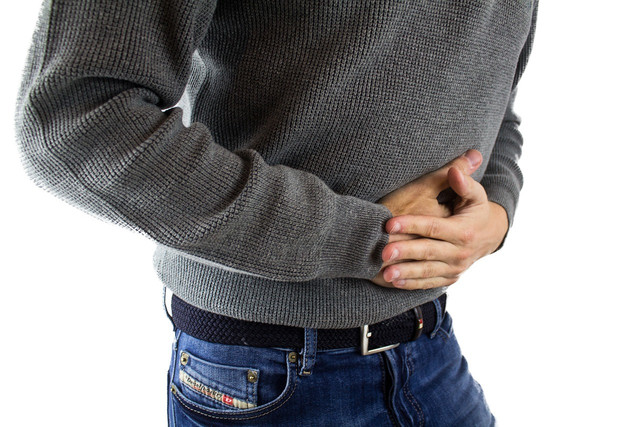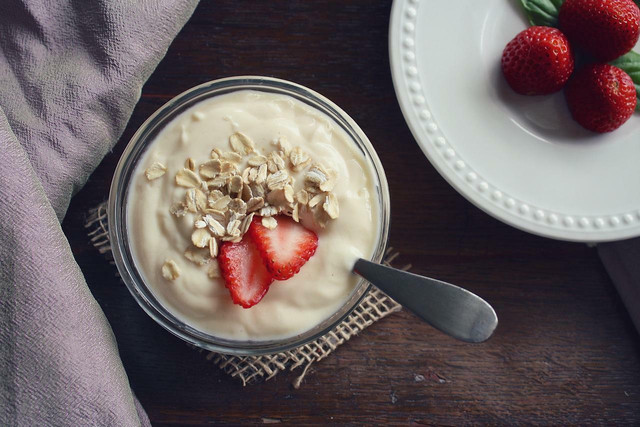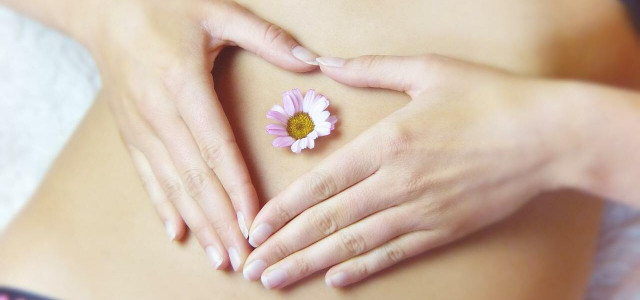Do natural remedies for bloating actually work? We took a deep dive into some of the tried and tested remedies so you don’t have to reach for the medicine cabinet.
First of all — let’s discuss what bloating actually is.
Bloating is caused by gas in the stomach — in the gastrointestinal tract, to be precise. Our bodies produce this gas while we digest food, and some gas can also come from air we swallow when we eat or drink. Carbonated drinks such as sodas also add to gas in the stomach.
Bloating is perfectly normal, but let’s face it: it’s annoying, uncomfortable, and unsightly. There may be plenty of over-the-counter remedies to help tackle bloating, but before you try those, give these natural remedies a try. You’ll save money, avoid plastic packaging and reduce time spent in a pharmacy.
When Should I Be Worried About Bloating?

(Foto: CC0 / Pixabay / derneuemann)
Just as a quick caveat — we know we said that bloating is perfectly normal, and it is. However, there are situations when it may be a cause for concern. For example, if you:
- Have been bloated for over three weeks
- Tried changing your diet but still keep getting bloated
- Notice any swelling or lumps in your stomach
- Also feel sick, have diarrhea or blood in your stool
- Find bloating is impacting your day-to-day life,
then it could be time to book an appointment with your healthcare provider. You may have something minor, like a food intolerance.
Call 911 or go to the emergency room ASAP if:
- You have a sudden, severe stomach ache
- It hurts to touch your stomach
- You’re vomiting blood
- Your stools are black or bloody
- You can’t pass stools, urine, or gas
- You can’t breathe
- You have chest pain
Try Exercising



(Foto: CC0 / Pixabay / Pexels)
Exercise is perhaps the most fool-proof of all the natural bloating remedies. Bloating is basically trapped gas, so mild exercise helps this gas to move around and get where it needs to go to leave your body.
Low-intensity cardio
A 2015 study found that steady-state cardio activities such as walking biking and aerobics improved IBS symptoms, including bloating and abdominal discomfort. The follow-up also showed that patients reported better quality of life and lower anxiety in the long-term.
1. Walking: 30 minutes of walking at a medium pace should be enough to relieve symptoms of bloating. There are also plenty of other benefits of walking
2. Biking: Sit up straight so that you don’t end up feeling uncomfortable.
3. Aerobics: Just five minutes of light aerobic exercise can help to dislodge some of that gas.
Yoga
The slow twists and gentle poses of yoga are ideal for working gas through your body, as this 2015 study concluded.
Our favorite yoga moves for bloating are:
4. Ardha Matsyendrasana: A classic twisting posture that squeezes the internal organs—your stomach, intestines, and kidneys.
5. Dhanurasana: This position increases blood flow to your digestive system and stimulates the adrenal glands which help to regulate your metabolism. Or,
6. Ustrasana: This will stretch your abdomen and chest, giving more space for the gas to move around in your stomach.
The worst workouts for easing a bloated stomach
Surprisingly, some workouts can actually exacerbate bloating. Particularly if you’re new to the sport, a little out of practice, or expending more energy than you normally would, exercise surprisingly doesn’t lower your cortisol (the stress hormone) but increases it. This encourages the body to hold on to water, which can make you feel bloated or pudgy.
Any kind of intensive exercise can trigger this response, but HIIT (High-Intensity Interval Training) and running tend to be the biggest perpetrators.
Drink More Fluids



(Foto: CC0 / Pixabay / PhotoMIX-Company)
7. Water: By water, we mean the non-carbonated kind. Drinking carbonated (soda) tap or bottled water will add to the gas in your belly.
Particularly if your bloating is due to fluid retention from eating too many salty foods or from premenstrual syndrome, then drinking 6-8 cups of water per day may help. Remember to drink your water slowly throughout the day and without a straw.
Dehydration can also impact your digestive system in other ways, such as causing constipation. This can increase that “backed up” feeling you get from being bloated. You’ll know you’re drinking enough water when your pee is colorless, or very light yellow.
8. Homemade sports drinks: Try these homemade pedialyte or homemade electrolyte drinks if you don’t like drinking plain water. They will also do a great job of keeping you hydrated.
Eat Probiotics



(Foto: CC0 / Pixabay / ponce_photography)
9. Probiotics: These are microorganisms found in certain fermented foods, such as yogurt and kimchi. They naturally occur in our bodies, and eating foods containing them can help our digestive systems to digest food and fight disease-carrying cells. Plus, probiotics are a great source of essential vitamins.
There are many different types of natural probiotics, but there are plenty of studies that point to Bifidobacterium, (found in certain yogurts, kefir, buttermilk, tempeh, miso, and pickles) as being the most useful strain for digestion.
Mind Your Hot Drinks



(Foto: CC0 / Pixabay / StockSnap)
10. Coffee: This can be both good and bad for bloating, depending on what kind of digestive system you have. Coffee is acidic, and can actually be good for digestion, as it stimulates the production of hydrochloric acid in your stomach, which helps your body to break down and digest food.
However, in other people, coffee can cause bloating from gastrointestinal distress. If you find that’s the case, you can try out different coffee substitutes to see which works best for you.
11. Avoiding coffee additions: Do you take milk with your coffee? This could be another reason your stomach reacts to your morning cup. Likewise, sweeteners such as sorbitol or aspartame are hard to digest and can therefore cause bloating. If this sounds like you, perhaps consider drinking your coffee black, or with a sugar-free, soy or almond milk.
12. Green tea: Or, better still, why not swap a coffee for green tea? The benefits of green tea are numerous, and it is a known prevention and aid to gastrointestinal issues.
Read more:
- The 5 Best Natural Remedies for a Stomach Ache
- What Should You Eat (And What Not) When You Have Diarrhea
- Natural Home Remedies for Colds: 7 Easy Recipes
Important Information regarding Health-related Topics.
** Links to retailers marked with ** or underlined orange are partially partner links: If you buy here, you actively support Utopia.org, because we will receive a small part of the sales proceeds. More info.Do you like this post?







